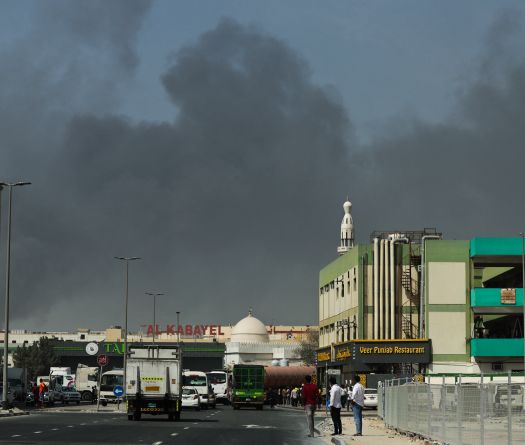
- 13:02 QatarEnergy says to stop production of some downstream products
- 12:59 Qatar not in communication with Iran: foreign ministry
- 12:56 Qatar says thwarted Iran attacks on airport
- 12:41 Putin and Orban hold call over Hungarian POWs captured fighting for Ukraine: Kremlin
- 12:38 Israel military says creating buffer zone in Lebanon
- 12:37 Iran Guards warn 'gates of hell will open more and more' on US, Israel
- 12:13 Israel stages ground incursion into south Lebanon border zone: Lebanese army source to AFP
- 12:05 Iran nuclear site suffered 'recent damage': UN nuclear agency
- 12:03 Eurozone inflation ticks up to 1.9 percent in February: official data
- 12:02 Saudi condemns 'unjustified' Iran attack on US embassy in Riyadh


Israel Army Says 'All Options on the Table' Regarding Lebanon Ground Offensive
This is Beirut 02/03 21:05

U.S. Official to TIB: ‘Hezbollah has made a grave mistake by entering this war at Iran’s direction’
This is Beirut 02/03 21:00

Israel Intensifies Campaign in Lebanon Against Hezbollah as Israeli Army Plans Next Steps
This is Beirut 02/03 18:20

Israel Army Chief Vows to Strike 'All Terrorist Leaders and Factions' Across Middle East
This is Beirut 02/03 16:45
See all

U.S. Embassies Targeted Throughout the Region
This is Beirut 03:40

Qatar Downs Iran Warplanes, Halts LNG Production as Gulf Crisis Deepens
This is Beirut 02/03 19:45

Breaking the Crowdfunding Myth: The Digital Architecture Funding Iran’s Proxy Wars
Ian Talley 02/03 16:05

Saudi Military Raises Readiness Levels After Attacks
This is Beirut 02/03 16:00

U.S. Secretary of War: “The Iranian Regime Must Change”
This is Beirut 02/03 15:45


































